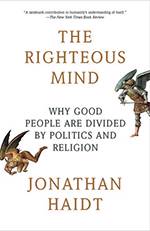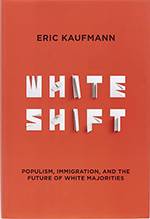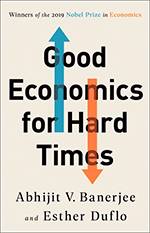Philippe Legrain
Says More…
This week in Say More, PS talks with Philippe Legrain, Visiting Senior Fellow at the London School of Economics’ European Institute.
Project Syndicate: In your latest PS commentary, you wrote that US President Donald Trump’s electoral loss dealt a powerful blow to the world’s other nationalist populists, beginning with British Prime Minister Boris Johnson, who now, at the eleventh hour, has to rethink his intransigence on a post-Brexit trade deal with the European Union. How should Johnson navigate these pressures? If a deal still hasn’t been reached when the transition period ends in less than two months, what should the United Kingdom be bracing for in 2021?
Philippe Legrain: Boris Johnson is a shameless opportunist. He backed Brexit in the EU referendum campaign in 2016 not because he believed in it, but because he thought it would help him become prime minister. He subsequently backed a hard break with the EU for similar reasons. Now, as prime minister, he will do whatever he thinks is in his own best interests; what he “should” do – as in, what is in the UK’s best interests – will not feature in his calculation.
The good news for hard-pressed Britons is that a last-minute post-Brexit trade deal is now more likely, because Johnson will be wary of alienating President-elect Joe Biden, as well as the EU, at a time when UK relations with China are also dire. The bad news is that the limited post-Brexit trade deal on offer would still be very costly.
Legrain recommends
We ask all our Say More contributors to tell our readers about a few books that have impressed them recently. Here are Legrain's picks:
-

The Righteous Mind: Why Good People Are Divided by Politics and Religion
by Jonathan Haidt
Liberal Westerners, Haidt argues, suffer from a “rationalist delusion”: the idea that “reason” leads to good behavior and is the pathway to moral truth. Yet, in his view, most of our conscious reasoning is after-the-fact justification of our moral intuitions, which shape our emotions and unconsciously govern our behavior. This book changed my worldview and, I hope, helped me become a more persuasive advocate, not least for immigrants.
-

Whiteshift: Populism, Immigration, and the Future of White Majorities
by Eric Kaufmann
When I bought Whiteshift as part of my research for Them and Us, I thought I would hate it. But it’s important to read books that challenge one’s own views. And, in fact, though there is much in this book with which I disagree, it is also a bold, impressive, and thought-provoking take on the issues of race, identity, and immigration.
-

Good Economics for Hard Times
by Abhijit V. Banerjee and Esther Duflo
Few economists have the academic credentials of a Nobel Prize, a willingness to test their ideas in the real world through rigorous experiments, or a commitment to implement their findings to make the world a better place. Banerjee and Duflo have all three. Their 2012 book, Poor Economics: A Radical Rethinking of the Way to Fight Global Poverty, showed how cutting-edge economics can be used to improve the lives of the poor in low-income countries. This one repeats the trick for rich countries. Among other things, it marshals a convincing case for the benefits of openness to immigration.
From the PS Archive
From 2018
In “Overcoming the Politics of Pessimism,” Legrain doubts that liberal democracy will survive unless the economic causes of populism are fully addressed. Read more.
From 2016
In “Has Brexit Undermined the West?”, Legrain reviews what Carl Bildt, Ken Rogoff, George Soros, and others regard as the causes and effects of Europe’s biggest political earthquake in a generation. Read more.
Around the web
In an interview for the European Institute at the London School of Economics and Political Science, Legrain discusses his new book, Them and Us: How Immigrants and Locals Can Thrive Together. Listen to the podcast.
